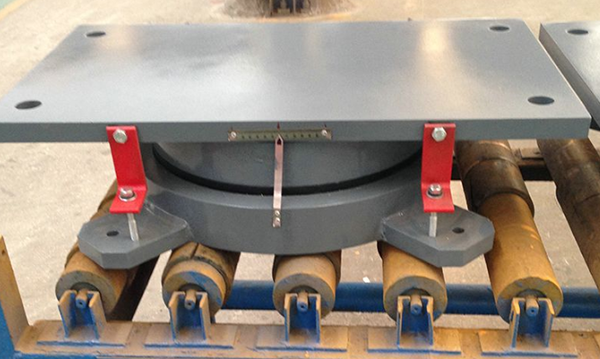Railway Continuous Beam Bridge Bearings: Ensuring Stability and Safety
Introduction
Railway bridges play a crucial role in maintaining efficient transportation networks, allowing trains to traverse various terrains and cross water bodies. To ensure the longevity and safety of railway bridges, the implementation of robust and reliable bridge components is essential. One such critical element is the continuous beam bridge bearing, specifically designed to support the loads and movements of railway bridges. In this article, we will explore the significance of continuous beam bridge bearings in railway infrastructure, their construction, benefits, and their contribution to railway engineering.
Understanding Railway Continuous Beam Bridge Bearings
Railway continuous beam bridge bearings are specialized mechanical devices placed at the interface between the bridge superstructure and the substructure. These bearings are designed to accommodate the loads and movements of continuous beam bridges, which consist of multiple spans supported by piers or abutments. The continuous beam bridge bearings facilitate controlled movement, rotation, and load transfer between different bridge components, allowing for thermal expansion, train-induced vibrations, and dynamic forces.

Construction and Design
Continuous beam bridge bearings for railway applications are constructed with specific features to ensure stability and durability:
Reinforced Elastomeric Pads: The bearing assembly consists of elastomeric pads, which are usually made of high-quality rubber materials reinforced with steel plates or laminated layers. These pads provide flexibility and damping properties, allowing for controlled movements while absorbing shocks and vibrations.
Steel Plates and Anchoring Devices: Steel plates form the structural framework of the continuous beam bridge bearings. They provide stability and support, ensuring the proper load transfer between the bridge elements. Anchoring devices, such as bolts or pins, secure the bearings to the bridge structure.
Benefits of Railway Continuous Beam Bridge Bearings
Load Distribution: Continuous beam bridge bearings effectively distribute the loads and forces from the train and the bridge deck to the supporting piers or abutments. This ensures even load transfer and minimizes stress concentrations, enhancing the structural integrity of the bridge.
Controlled Movement: The flexibility of continuous beam bridge bearings allows controlled movement and rotation of the bridge elements, accommodating thermal expansion and contraction. This mitigates the risk of excessive stress and damage, ensuring the long-term durability of the bridge.
Vibration Damping: Continuous beam bridge bearings play a crucial role in dampening vibrations induced by passing trains. The elastomeric pads absorb shocks and vibrations, reducing the transmission of vibrations to the bridge structure and providing a smoother ride for trains.
Maintenance and Inspection: The use of continuous beam bridge bearings simplifies maintenance and inspection procedures. The replaceable elastomeric pads can be easily accessed and replaced when necessary, minimizing downtime and maintenance costs.
Applications of Railway Continuous Beam Bridge Bearings
Railway continuous beam bridge bearings are utilized in various railway bridge configurations, including simple-span bridges, multiple-span bridges, and viaducts. They are suitable for both high-speed and heavy freight railway lines, ensuring the stability and safety of the track system. Continuous beam bridge bearings are specifically designed to withstand the dynamic forces and loadings associated with railway operations, contributing to the overall efficiency and reliability of the railway infrastructure.
Conclusion
Railway continuous beam bridge bearings are vital components in the construction and maintenance of railway bridges. These bearings facilitate controlled movement, load transfer, and vibration damping, ensuring stability, durability, and safety. By distributing loads, accommodating thermal expansion, and reducing vibrations, continuous beam bridge bearings contribute to the longevity and reliability of railway infrastructure. Their application in railway engineering supports efficient train operations, enhances passenger comfort, and reinforces the transportation network's overall integrity.

